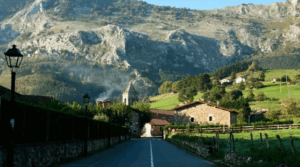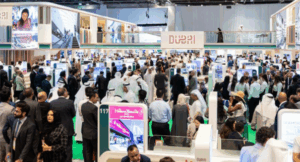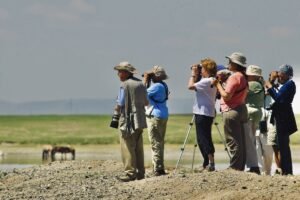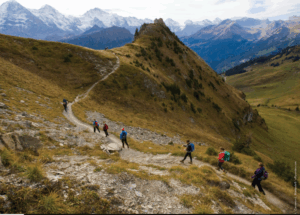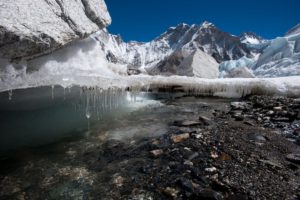Major world events of 2021

Covid not going away
More than five million people die from the virus despite eight and a half billion vaccine shots being given, with poor countries still struggling to get their hands on doses. Borders slowly reopen and the Olympics take place in Tokyo a year late to empty stadiums. The world sees a resurgence of the pandemic late in the year, as the highly infectious Omicron strain spreads at an unprecedented rate. With initial vaccine immunity wearing off, nations try to counter the virus with booster shots and a return to restrictions.
US: Chaos at the Capitol
Hundreds of supporters of Donald Trump storm the Capitol, the seat of American democracy, on January 6 attempting to block the confirmation of Joe Biden’s presidential election victory over the tycoon two months earlier.
Biden is sworn in as the 46th US president two weeks later, with Trump refusing to attend the inauguration.
On February 13, Trump is acquitted on charges of inciting the Capitol insurrection at a historic second impeachment trial, but only after Senate Republicans close ranks.
Navalny jailed
On January 17, the Kremlin’s most prominent critic Alexei Navalny is arrested on returning to Moscow, five months after being treated in Germany following a poisoning attack he blames on Russian President Vladimir Putin.Moscow denies involvement. In February, Navalny is sentenced to two-and-a-half years in prison on old embezzlement charges he says are politically motivated.
A year of coups
On February 1, Myanmar leader Aung San Suu Kyi is arrested in a coup that ends the country’s decade-long experiment with democracy.More than 1,100 people have since been killed and thousands arrested during the violent suppression of mass protests against the military junta.Suu Kyi is sentenced in December to two years in prison for inciting public unrest and violating health rules and faces decades in jail if convicted in other trials.
On May 24, Mali strongman Colonel Assimi Goita carries out the West African country’s second coup in 10 months. In Tunisia in July, President Kais Saied takes wide-ranging powers. Guinea’s president Alpha Conde is overthrown in a military coup on September 5. And in Sudan, in November Prime Minister Abdalla Hamdok is reinstated, but the army tightens its grip after the previous month’s coup.
Hamas-Israel war
On May 3, violence explodes between Israel and the Palestinians after clashes in the east Jerusalem neighbourhood of Sheikh Jarrah, sparked by a years-long bid by Jewish settlers to take over Arab homes.
Violence spreads to the Al-Aqsa Mosque compound and the occupied West Bank.
A week after the first clashes, the Islamist movement Hamas, which rules in the Gaza Strip, fires rockets at Israel, which hits back, leading to an 11-day war in which 260 Palestinians die. Thirteen die on the Israeli side.
On June 13, Israel gets a new government led by hardline Prime Minister Naftali Bennett, ending Benjamin Netanyahu’s 12-year reign.
Taliban return to power
The Taliban enter Kabul on August 15, following a lightning offensive after the withdrawal of US and NATO troops, retaking power 20 years after being driven out by a US-led coalition.At least 123,000 diplomats, foreigners and Afghans are flown out in a chaotic evacuation.The last remaining troops pull out on August 30, marking the dramatic end of the United States’ longest war.
Europe shaken
Britain, which left the European Union’s single market on January 1, faces empty shelves and a fuel crisis because of labour shortages, especially of lorry drivers.
Brexit creates tensions in Northern Ireland, as well as between the United Kingdom and its neighbours, especially France, over fisheries and migrants.
German Chancellor Angela Merkel bows out after 16 years in power. Social Democrat leader Olaf Scholz, allied to the Greens and the Liberals, succeeds her on December 8.
An October 7, ruling by Poland’s Constitutional Court saying European law could only apply in specific areas sets the country at odds with the rest of the EU.
Extreme climate events
Prolonged global warming beyond the 1.5 degrees Celsius (2.6 degrees Fahrenheit) agreed under the Paris accord could produce “centuries long and… irreversible consequences” UN experts tell AFP in June.
Extreme climate events multiply across the world, from catastrophic floods in Germany and Belgium to devastating and long-running wildfires in the US, Russia, Turkey, Greece, Spain and Algeria.
A so-called “heat dome” in June in western Canada and the US West kills hundreds.
In November, the COP26 summit in Glasgow pledges to accelerate the fight against rising temperatures. But commitments fall short of what scientists say is needed to contain dangerous rises.
In December, dozens of tornadoes tear through six US states, killing at least 88.
Poland-Belarus migrant crisis
In November, thousands of mainly Middle Eastern migrants camp out in freezing temperatures on Belarus’ border with Poland seeking to cross into the EU.
The West accuses Minsk of engineering the influx in response to sanctions imposed after the brutal repression in 2020 of a protest movement against “Europe’s last dictator”, Belarus President Alexander Lukashenko.Belarus and Russia deny stoking the crisis, and lash the EU for not taking the people in.At least a dozen migrants die on both sides of the border, according to aid organisations.The West extends its sanctions against Minsk.
Big step on tax
In October, G20 leaders adopt a historic global agreement for a minimum 15 percent corporate tax.
Some 136 countries representing more than 90 percent of global GDP sign the OECD-brokered deal to more fairly tax multinational companies.US internet giants such as Google, Amazon, Facebook and Apple -experts in basing themselves in low-tax countries – are particular targets of the new global regulation.
Return of inflation
Snarled supply chains and a global crunch in essential materials like semiconductors drive consumer prices higher in 2021.US inflation surged 6.8 percent in November, the largest annual jump in 39 years. Eurozone inflation surged 4.9 percent, the highest level for three decades, fuelled by soaring energy prices.
US-China standoff
Faced with mounting incursions by Chinese warplanes into Taiwan’s air defence identification zone, Biden warns that Washington strongly opposes moves to “undermine peace and stability across the Taiwan Strait”.
Chinese leader Xi Jinping cautions Biden in November that encouraging Taiwanese independence would be “playing with fire.”
In early December, the US, Canada, Australia and Britain announce a diplomatic boycott of the Beijing Winter Olympics in February, in response to alleged rights abuses by China, notably against the Uyghur minority in Xinjiang.
Ukraine stand-off
The US president warns Putin in December that Moscow will face unprecedented economic sanctions should the tens of thousands of Russian troops massed on the Ukrainian border launch an attack.
The EU and NATO also warn of “massive consequences” of an invasion.
Putin demands guarantees that the one-time Soviet republic never be allowed to join NATO. The tensions push gas prices to record highs.Source:AFP
27 December 2021


